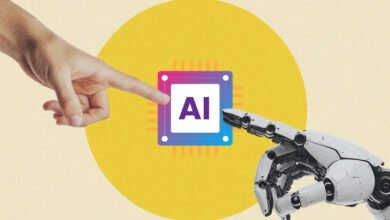12 Must-Have SEO Skills to Master by 2026

▼ Summary
– The SEO industry is rapidly evolving, requiring professionals to master new skills by 2026 to stay competitive.
– Strategic thinking is essential, with SEO now needing to align with broader business goals like revenue and brand equity.
– AI and machine learning literacy will be critical, as AI tools reshape search algorithms and user experiences.
– Content must shift from keyword-focused to experience-driven, incorporating storytelling and multiformat optimization.
– SEO professionals must integrate UX, CRO, and data analytics to meet evolving user intent and privacy regulations.
The world of SEO is undergoing a seismic shift, with emerging technologies and changing user behaviors reshaping what it means to be an effective search specialist. As we approach 2026, professionals who adapt their skillset will dominate the landscape, while those clinging to outdated tactics risk becoming obsolete. Here’s what tomorrow’s top SEO experts need to master.
Strategic vision now separates competent practitioners from industry leaders. Gone are the days when technical tweaks alone could guarantee results. Modern SEO demands a big-picture approach that aligns search performance with overarching business objectives. Specialists must demonstrate how organic visibility drives revenue, nurtures customer relationships, and strengthens brand positioning.
Artificial intelligence isn’t just changing search algorithms—it’s revolutionizing how we approach optimization. Understanding machine learning models like BERT and Gemini helps professionals anticipate ranking shifts, while AI-powered tools enhance content creation and trend analysis. The most valuable SEOs will become fluent in collaborating with AI systems rather than competing against them.
Content has evolved far beyond keyword-stuffed paragraphs. Compelling storytelling that engages audiences while satisfying search intent will dominate successful strategies. This means crafting narrative-driven experiences across multiple formats—text, video, audio, and interactive elements—all structured around user journeys rather than robotic search queries.
User experience fundamentals have become inseparable from SEO success. Core Web Vitals and other page experience metrics continue gaining importance, requiring specialists to master layout optimization, intuitive navigation, and conversion-focused design. The line between technical SEO and UX expertise keeps blurring—professionals must straddle both worlds.
Data interpretation skills now carry more weight than ever. With privacy regulations limiting traditional tracking methods, SEOs must extract deeper insights from available analytics. This means going beyond surface-level metrics to uncover behavioral patterns, content performance drivers, and hidden opportunities within first-party data.
Technical SEO is entering its next evolution phase. Structured data mastery, API architecture comprehension, and headless CMS optimization will become standard requirements rather than niche specialties. As search engines grow more sophisticated in processing information, technical specialists must keep pace with emerging indexing methods.
Visual and multimodal search optimization represents one of the fastest-growing specializations. With platforms like Google Lens and Pinterest Visual Search gaining traction, professionals must learn to optimize images, videos, and other non-text content for discovery. This includes understanding how AI interprets visual elements and connects them to user intent.
Brand management through search channels has become critical. SEOs must now protect and enhance digital reputation across knowledge panels, featured snippets, and AI-generated summaries. This involves proactive content strategies that shape how brands appear across evolving search interfaces.
Privacy-conscious optimization presents both challenges and opportunities. As regulations tighten and users demand greater control, specialists must develop strategies that deliver personalized experiences without compromising ethical standards. Building trust through transparent practices will become a competitive advantage.
Agile methodologies are transforming how SEO projects operate. The ability to rapidly test, iterate, and communicate results across departments separates high-performing teams from stagnant ones. Professionals must adapt to continuous optimization cycles rather than one-time fixes.
AI prompt engineering has emerged as an unexpected but vital skill. Crafting precise instructions for content generation tools ensures outputs align with brand voice and search requirements. This technical-creative hybrid skill helps maintain quality at scale.
Perhaps most importantly, emotional intelligence underpins all successful SEO strategies. Understanding user psychology—their frustrations, aspirations, and decision-making processes—creates content that resonates beyond algorithmic requirements. The human element remains SEO’s most powerful differentiator.
The future belongs to adaptable professionals who blend technical prowess with creative problem-solving. As search continues evolving, the most valuable specialists will be those who view SEO not as isolated tactics, but as an integrated discipline connecting technology, psychology, and business strategy. Those who embrace this multidimensional approach will define the next era of search marketing.
(Source: Search Engine Land)





